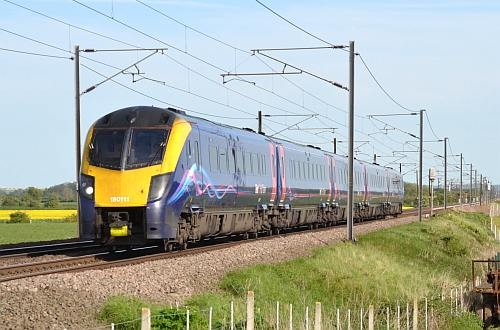In a letter to the Office of Rail and Road (ORR) dated October 2 responding to an industry consultation on ECML open-access, NR's capacity planning director Mrs Fiona Dolman explains that much of the information required to make a complete analysis of the impact of open-access on the performance of franchised services, most notably an outline timetable and supporting resource plan, is not yet available.
NR's impact assessment is therefore based solely on an increase in the number of trains and the "known capacity improvement schemes" that are due to be implemented over the next five years. "In the absence of detailed information other than the quantum of trains at this stage in the process and drawing on lessons from some of the more recent timetable changes it is very difficult to provide an estimate five years away from a change that will include new infrastructure, a new method of signalling, and new rolling stock," Dolman says.
NR says no timetable has been developed to provide eight trains per hour and it has not drawn up a timetable which "successfully integrates" inter-city services with Thameslink suburban services between London and Peterborough, which will be significantly increased over the next few years. This means that even with planned capacity enhancements on the southern section of the ECML "it is not possible at this time to definitively confirm whether it is possible to run eight long-distance services once the connectivity outputs have been delivered."
NR also points out that regional services in northeast England are timed around long-distance services at key hubs such as Doncaster, York and Newcastle. Recasting the ECML long-distance timetable would therefore require changes to regional services. With the Northern and TransPennine franchises currently being tendered, it is unclear what changes will be made to services in this region, particularly with the development of the Northern Hub, which will significantly increase capacity for regional services elsewhere in northern England.
NR notes that an increase in TransPennine and Northern services could limit or eliminate capacity for new long-distance services from London to destinations away from the ECML, including Bradford, Harrogate, Hull (via Selby) and Huddersfield. There is also considerable uncertainty surrounding the timetables for many of these routes in 2020, and in the absence of a consolidated timetable NR says it is "unable to conclude definitively what the capacity constraints would be."
Power supplies are cited as another issue and NR says it has identified constraints in the Doncaster area "where no increase in the present load of electric services is possible."
Arriva subsidiary Alliance Rail Holdings applied to ORR in February 2014 to introduce an hourly London King's Cross – Newcastle – Edinburgh service in December 2016 with a journey time of 3h 43min using a fleet of Pendolino trains. In March this year First Group also applied to ORR for paths to operate five London - Edinburgh services per day from 2018.
Responding to Dolman's letter on October 12, Alliance managing director Mr Ian Yeowart told ORR: "It is disappointing to see that NR has moved away from its position in the December 2014 report on ECML Capacity in 2020. Now it cannot confirm that it will be possible to operate eight long-distance services per hour even when the Connectivity Fund schemes are delivered. It even seems to cast doubt on the ability to run seven trains per hour although, as we and First Group have pointed out before, there are several hours now where at least seven long-distance paths are scheduled."
Alliance says it would expect NR to recast the long-distance timetable and notes that NR is insisting on greater flexibility in its contracts with operators to give it greater freedom in how capacity is utilised. "We should expect NR to have the capability to optimise the use of the network, but now they seem nervous about this," Yeowart observes.
Yeowart criticises NR's analysis of capacity constraints away from the ECML as "superficial and in some cases misleading" as it does not distinguish between peak and off-peak constraints and includes routes where none of the current applicants are seeking access.
On the issue of power supplies, Yeowart concedes that there is some uncertainty over capacity between Newcastle and the Scottish border but says he was "alarmed to read that there is a problem in the Doncaster" area where upgrades have already been carried out as part of NR's ECML Power Supply Upgrade Phase 1.
Yeowart also questions why NR has not factored the additional capacity generated by the introduction of ETCS on the southern section of the ECML, which is due to be commissioned by December 2020, into its assessment.

